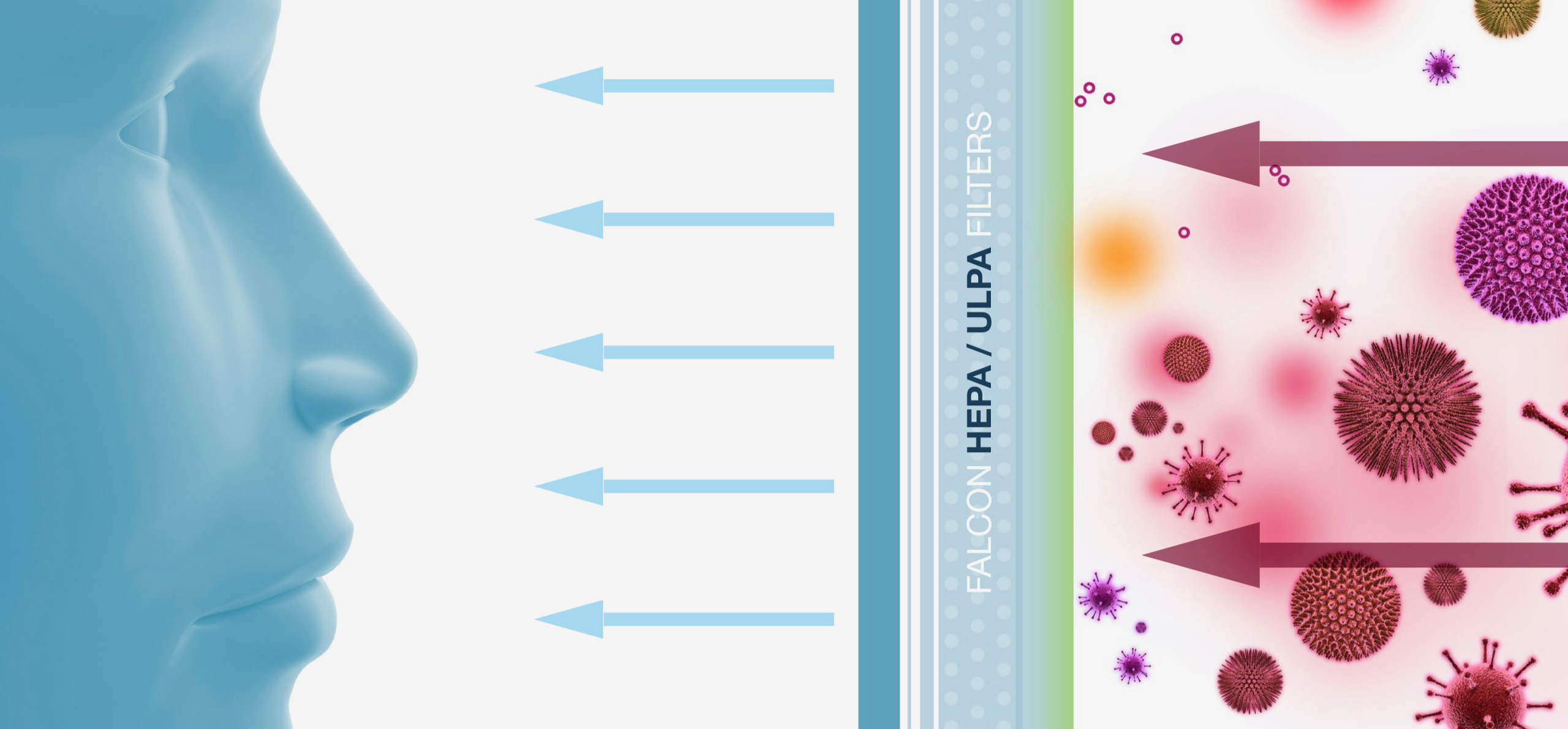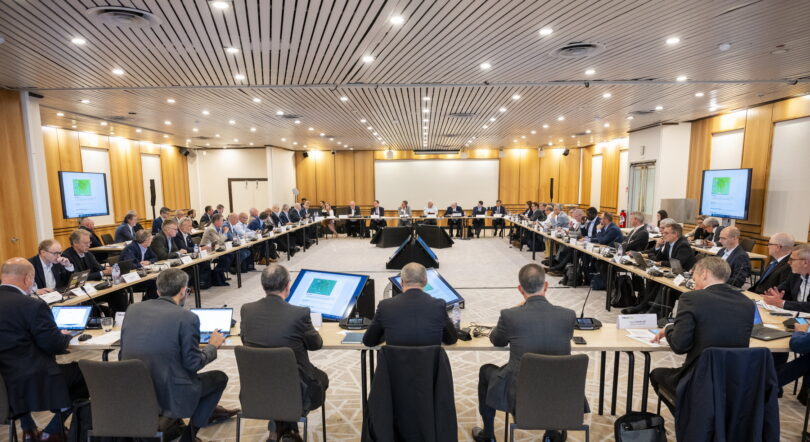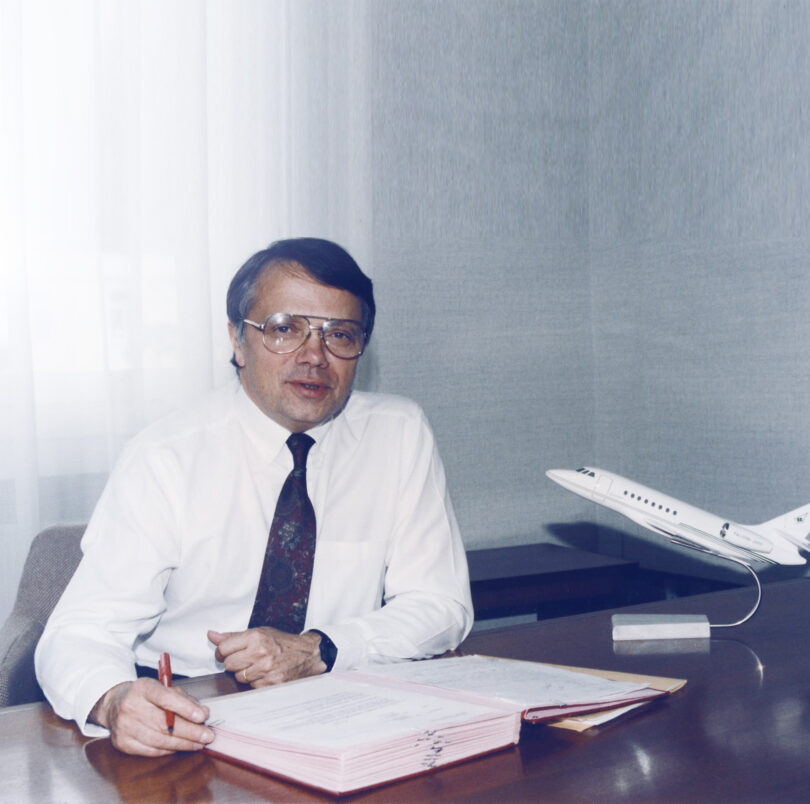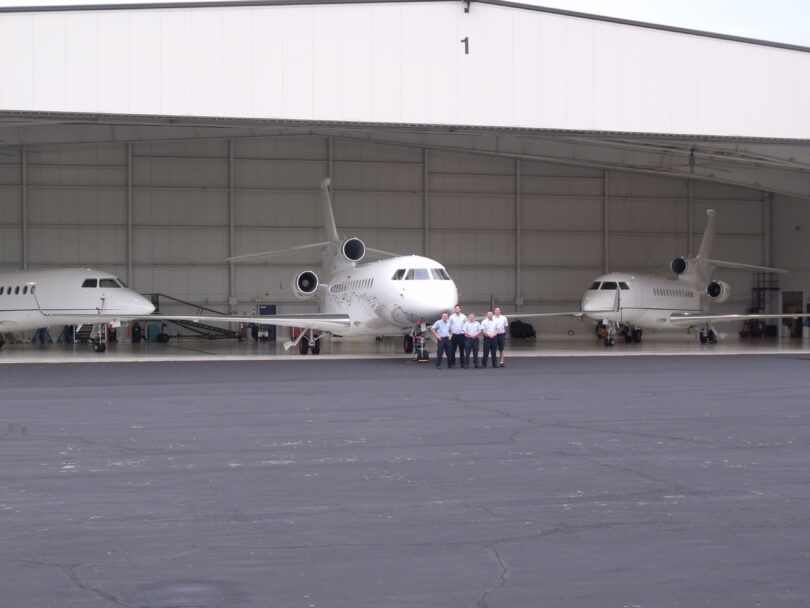Understandably, concerns have been expressed recently about aircraft cabin air quality in the midst of the current pandemic. While the media has been awash with stories about Covid-19, one thing is clear. The disease and our understanding of it is evolving over time. In light of that fact, Dassault is evaluating air-quality best practices on a continuing basis so that all of us can work and travel in safety now and for the foreseeable future.
You can review all the things we are doing to help you and your passengers minimize new health risks on our Falcon Customer portal (there’s a special Covid-19 section), via our Falcon Webinar Summer Series and in one-on-one interactions with our operators.
For one, we have been informing operators about HEPA filters, which can be installed as options on the 7X and 8X (if they were not installed originally at the factory). HEPA filters, used in hospital intensive care units and isolation rooms, can effectively filter out virus particles in the size range of the coronavirus that causes Covid-19.
Cabin air on these aircraft is also refreshed every two to three minutes, which keeps virus particles from lingering in the cabin. It has been widely reported that this circulation is vastly better than in typical office buildings.
For our models not equipped with HEPA filters, we have procedures for limiting recirculation, in some cases by managing temperature control from the cockpit. Dassault is currently evaluating the installation of HEPA filters on Falcon 900 and 2000 models, with more news to follow.
However, there are other ways to minimize health risks for passengers and flight crews.
In fact the business aviation community is in a much better position than airlines to control the safety of any flight. We have more control over where we fly and when. We can more thoroughly and more frequently clean and disinfect our aircraft. We have better information on our passengers’ health. And we can keep those passengers at a safe distance while aboard, even limit their numbers and their luggage.
No doubt your flight department is establishing its own best practices for managing this health concern. “Managing” being the operative word, as we all must find a way to manage through a prolonged health crisis. Part of the solution will be technical and operational, but, for the foreseeable future, much will also depend on adapting personal behaviors.
Take care, my friends, and fly safely. I look forward to the day I can devote this column to topics like robotic inspections and our next face-to-face gatherings.
That day will come soon.
Jean Kayanakis
Senior Vice President, Worldwide Falcon Customer Service & Service Center Network
Dassault Aviation



